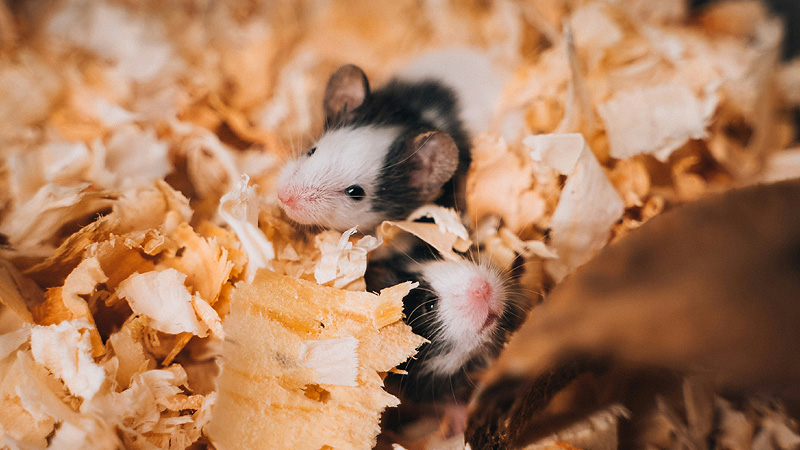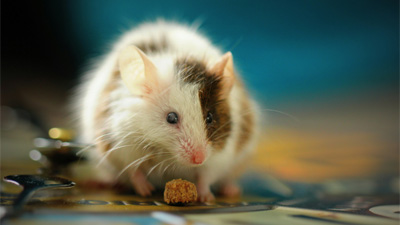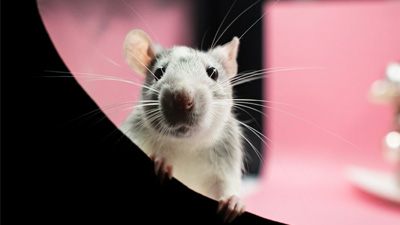Pet Mice vs. Rats: What Is the Difference?

Photo by Venelin Stoyanov on Unsplash
When it comes to choosing a small furry friend as a pet mice and rats are often considered due to their small size and low maintenance requirements. However, while both mice and rats belong to the same family of rodents, there are distinct differences between them as pets. In this article, we will explore the key differences between pet mice and pet rats, including their size, behavior, care requirements, and the overall experience of owning these adorable creatures.
Size and Appearance
One of the most obvious differences between pet mice and rats is their size and appearance. Mice are generally smaller in size, measuring around 2-4 inches, excluding the tail, which can be an additional 2-4 inches long. In contrast, pet rats are larger, typically ranging from 6-9 inches in body length, with their tails adding another 7-10 inches.
In terms of physical appearance, mice typically have a slender body with rounder features and larger ears. They come in a variety of color variations, including white, brown, black, or a combination of these colors. Pet rats, on the other hand, have a more robust and elongated body, with smaller ears and a longer snout. They also exhibit a wide range of colors and coat patterns, including solids, patches, and even "dumbo" rats with larger ears positioned lower on the head.
Behavior and Temperament
Pet mice and rats also differ in their behavior and temperament. Mice are naturally more skittish and tend to be more timid and prone to stress. They are swift and agile creatures that enjoy exploring and climbing. While they can be tamed with patience and regular handling, they may not be as inclined to bond closely with their human caretakers compared to rats.
On the other hand, pet rats are known for their social and affectionate nature. They have a higher tolerance for being handled, making them more suitable as pets for young children or individuals seeking a more interactive experience. Pet rats enjoy human interaction and form strong bonds with their owners. They are intelligent and trainable, and many rat owners find that their pets can learn tricks and even respond to their names.
Lifespan
The lifespan of pet mice and rats also differs significantly. Mice generally have a shorter lifespan compared to rats, living on average for about 1-2 years. Some species of mice, such as fancy mice, may live slightly longer, but they typically do not live beyond 3 years. In contrast, pet rats have a longer lifespan, averaging 2-3 years, although some individuals can live up to 4 years or longer with proper care.
Care Requirements
Both pet mice and rats have similar care requirements in terms of housing, food, and health maintenance. However, there are slight differences to consider.
Housing: Mice and rats require a suitable enclosure that provides enough space for them to move and explore. For mice, a small aquarium or wire cage with narrow bar spacing is essential to prevent escape. They are excellent climbers, so providing plenty of ropes, ramps, and hiding places is important. For rats, a larger cage with multiple levels and more space is necessary to accommodate their size and need for exercise. They also enjoy having more toys and opportunities for enrichment.
Feeding: Mice and rats are omnivorous and require a balanced diet. Commercial rodent food designed specifically for mice or rats can serve as the base of their diet. Additionally, fresh fruits, vegetables, and occasional treats can be offered for variety and enrichment. It is crucial to provide fresh water at all times.
Healthcare: Both mice and rats require regular veterinary care to ensure their well-being. This includes routine check-ups, vaccinations if necessary, and preventative treatments for parasites. As they age, they may also require dental care to prevent overgrowth of their teeth. It's important to note that rats are more prone to developing respiratory issues than mice, so proper ventilation and environmental cleanliness are essential.
Interaction and Bonding
The level of interaction and bonding between pet mice and rats and their owners can vary. Pet mice may be less inclined to bond closely with humans, as they are more naturally skittish and timid. While they can be tamed with regular handling and patient interaction, it may take more time and effort to establish a close bond.
Pet rats, on the other hand, are highly social animals that thrive on human attention and companionship. They enjoy being handled and often seek out interaction with their owners. Many rat owners find that their pets become very attached to them and show affection through behaviors such as grooming or cuddling.
Choosing the Right Pet
When considering whether to choose a pet mouse or a rat, several factors should be taken into account. If you are seeking a smaller, more independent pet that requires less interaction, then a mouse may be a suitable choice. Mice can be a better option for individuals with limited space or who may prefer to observe their pet's behavior rather than actively interact with them.
If you are looking for a more interactive and social pet that can bond closely with you, then a pet rat may be the better option. Rats require more space and attention, but they offer a rewarding and engaging pet-owning experience, particularly for individuals seeking closer companionship.
Ultimately, the decision between a pet mouse and a pet rat should be based on your lifestyle, preferences, and ability to meet their specific care requirements.
Conclusion
Pet mice and rats have distinct differences in terms of size, behavior, lifespan, and care requirements. Mice are smaller, more skittish, and have a shorter lifespan, while rats are larger, more social, and can live longer. Owning a pet mouse offers a more observational experience, while pet rats provide a more interactive and affectionate bond.
The decision between owning a pet mouse or rat ultimately depends on personal preferences, lifestyle, and the ability to meet their specific care needs. Regardless of the choice, both pet mice and rats can bring joy, companionship, and entertainment to their owners, creating a rewarding pet-owning experience for those who welcome these adorable rodents into their homes.





